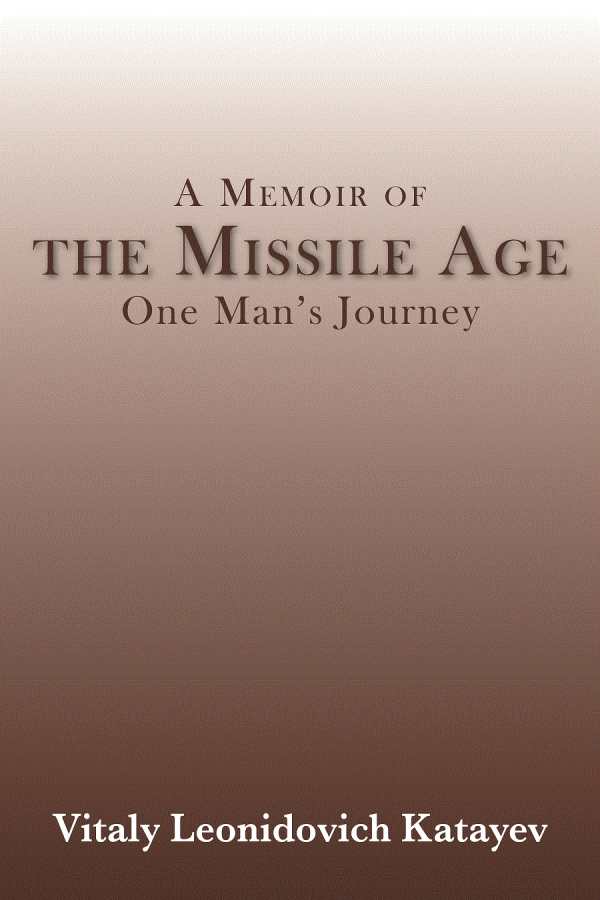It looks like you've stumbled upon a page meant to be read by our code instead of viewed directly. You're probably looking for this page.
A Memoir of the Missile Age
One Man's Journey
This fascinating memoir of a Soviet military technology engineer recounts with conviction the political failings of nuclear disarmament.
When Vitaly Leonidovich Katayev, author of A Memoir of the Missile Age: One Man’s Journey, was a child, he was admired for the models he made of ships and airplanes, so his family was not surprised that when they asked him about his ambition after graduating from a technical school, his answer was, “number one: interesting work, a designer’s job would be best of all.”
And design he did: airplanes, space rockets, and weapon delivery systems. He rose through the bureaucratic ranks of his country’s military-industrial complex to become deputy head of defense and security under Mikhail Gorbachev during the nuclear disarmament talks between the Soviet Union and the United States.
Katayev, who died in 2001, left behind this memoir, which is described in an introduction by Dave E. Hoffman, who won a Pulitzer Prize in 2010 for a book about the nuclear arms race that sheds light on the “dark corners of the arms race from the Soviet side.”
Katayev suggests in A Memoir of the Missile Age, which he deposited at the Hoover Institution at Stanford University, that the Soviets and Americans both exaggerated the capabilities and intentions of the other. Opponents of disarmament on the Soviet side asked, “Can you tell us where these outrageous goings-on come from? Trying to eliminate almost new nuclear missiles which the USSR had so much trouble building! It’s a crime against the state!” (And was not similar uttering heard in the USA?)
He recounts technical failings in the Soviet program, the politics and bickering among agencies, and the divisions between the disciples of diplomacy and those who praised the virtues of the military. In Katayev’s reckoning, Gorbachev deserves high marks for at least limiting the deployment of short- and medium-range nuclear weapons.
Katayev leaves us with a question: “Is it a good thing to do, to resolve a battlefield problem by triggering a suicidal nuclear disaster?” And he concludes with a dour afterthought: “Unfortunately, attempts to build new tactical nuclear weapons are still going on. Those who are trying to revive this type of weapons should remember the old saying—it is the fire that has already died out that may cause the biggest flames.”
Reviewed by
Tom Bevier
Disclosure: This article is not an endorsement, but a review. The publisher of this book provided free copies of the book to have their book reviewed by a professional reviewer. No fee was paid by the publisher for this review. Foreword Reviews only recommends books that we love. Foreword Magazine, Inc. is disclosing this in accordance with the Federal Trade Commission’s 16 CFR, Part 255.
